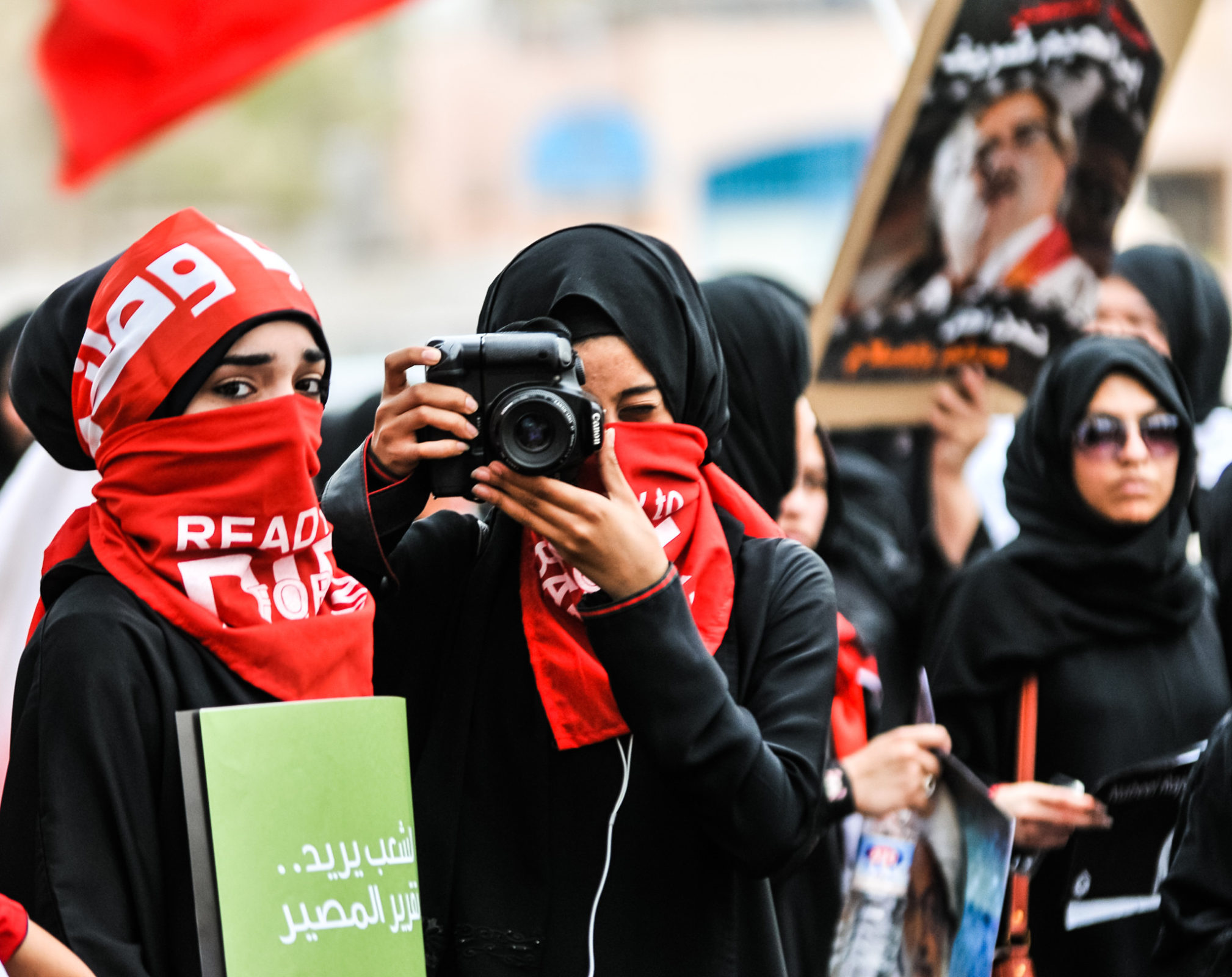On Friday, 3 June 2016, Bahrain’s Information Affairs Minister, Ali ibn Mohammed al-Rumaihi, stated that Bahrain has embarked on a path towards democracy and rule of law. The government’s commitment to this, he emphasized, will be persistent, guaranteeing the peaceful freedom of expression through legitimate channels including the parliament, civil institutions, as well as free and pluralistic mass media. In addition to this, the minister said that Bahrain is committed to tolerance between religions, civilizations, and cultures. He stated that current convictions handed down by the government do not contradict the country’s
Bahraini authorities continue to criminalize the exercise of freedom of expression by punishing those critical of the government. On 9 February 2014, the government Article 214 of the penal code to permit a maximum jail term of seven years and a fine of up to 10,000 Bahraini Dinars for those who the government believes have offended Additionally, Article 216 of the amended penal code declares that “a person shall be liable for imprisonment or payment of a fine if he offends by any method of expression the National Assembly, or other constitutional institutions, the army, law courts, authorities or government agencies.” To date, these articles remain in place, anyone who dares speak critically of the government. Intimidation goes beyond the laws and can be heard in speeches by government officials. After the protests of February 2011, Shaikh Nasser Bin Hamad Al Khalifa appeared on television and stated that, “anyone who called for the fall of the regime, may a wall fall on his head…anyone who involved himself in these matters and became a part of it, will be held accountable…Bahrain is an island, and there is nowhere to escape to!”
While the government continues to meaningful and beneficial political discussion, it permits hateful sectarian speech targeted against the majority Shia population. Shortly after the ISIS suicide bombing at the Shia Imam Hussein Mosque in Dammam, Saudi Arabia on 29 May 2015, Jassim al-Saidi, a former member of the Bahraini parliament, tweeted, “O Allah, destroy the Magi and their Jew and the Christian supporters…Amen.” In another tweet he wrote, “To heretics and infidel Magi, you are Christians and Jews’ dogs and donkeys…Iran’s agents in the Arabian Gulf.” Magi (Majoos) is a derogatory term used to attack the Shia populations. Ahmed al-Malki, a member of the government’s Prisoners and Detainees Rights Commission, tweeted, “You cannot win Zionists’ loyalty, that’s why Hitler decided to exterminate them and the British established a colony for them in Palestine; and this is what we should do with Welayat al-Faqih.” Welayat al-Faqih is a reference used to denote political systems based on Shia Islamic jurisprudence.
If the Bahraini government is truly committed to freedom of expression, then it must begin to make meaningful reforms that allow criticism of the government. Bahraini authorities should release all political prisoners in detention on free expression charges. Further, the government should make necessary reforms to the penal code that allow for criticism of the government.
Matthew Howell is an Advocacy Intern for ADHRB.





